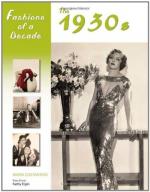|
This section contains 198 words (approx. 1 page at 300 words per page) |

|
During the election campaign the Democrats were given a brief scare. Public-opinion polling was then in its infancy, and a flawed poll conducted by the Literary Digest in October 1936 incorrectly predicted a landslide victory for Roosevelt's Republican opponent, Alf Landon of Kansas. As it turned out, the poll sample had been skewed because the poll takers had relied on Literary Digest subscription lists and on phone books to compile their polling sample. In the mid 1930s a relatively small number of Americans — generally the wealthier and more conservative ones who voted Republican — owned telephones. The Literary Digest predicted that 55 percent of the vote would go to Landon. They were wrong. Election day 1936 was the day of greatest electoral triumph for the Democrats in the party's history. The president received 27,752,869 votes (60.8 percent of the popular vote) to Landon's 16,674,665 (36.5 percent), while Union Party...
|
This section contains 198 words (approx. 1 page at 300 words per page) |

|




